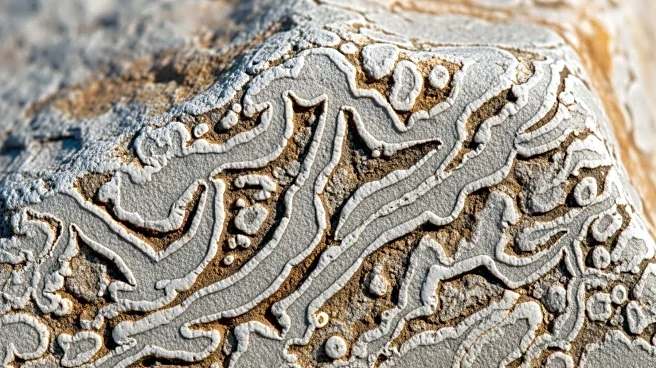What's Happening?
Researchers have uncovered evidence of the proto-Earth, the early form of our planet before the Moon-forming impact, by analyzing potassium-40 isotopes in ancient rocks. The study, published in Nature
Geoscience, compared isotopic ratios in ancient rocks from Greenland, Canada, and Hawaiian lava with those in meteorites. The findings suggest that these rocks contain remnants of the proto-Earth, as they exhibit different potassium-40 concentrations compared to modern Earth samples. This discovery provides insights into Earth's early composition and the materials that formed it.
Why It's Important?
Identifying remnants of the proto-Earth offers a unique glimpse into the planet's formation and the events that shaped its early history. Understanding the composition of the proto-Earth can help scientists reconstruct the conditions that led to the formation of the Moon and the evolution of Earth's geology. This research also highlights the potential for discovering new materials that contributed to Earth's formation, which could refine models of planetary development and the processes that govern it.
Beyond the Headlines
The study challenges existing models of Earth's formation by suggesting that the planet's building blocks may include materials not yet identified in meteorite samples. This opens up new avenues for research into the origins of Earth and the solar system. The findings also underscore the importance of isotopic analysis in uncovering the history of planetary bodies, offering a method to trace the evolution of other celestial objects.










